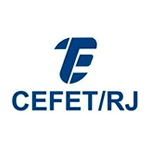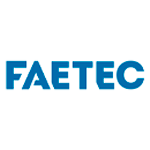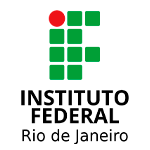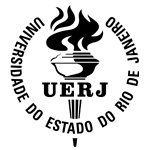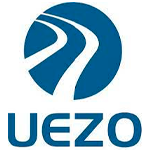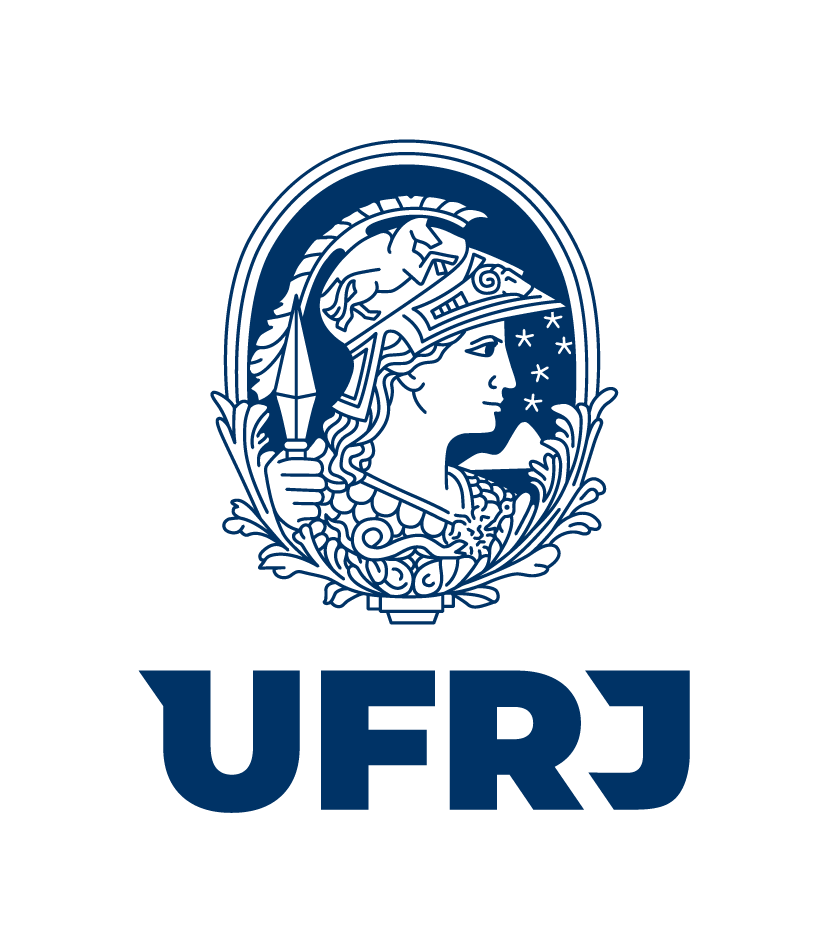Cursos Online Abertos e Massivos (MOOC) e o Ensino de Ciências: uma Revisão Bibliográfica
Una Revisión Bibliográfica
DOI:
https://doi.org/10.18264/eadf.v10i2.1101Resumo
Os Cursos Online Abertos e Massivos - MOOC - são uma proposta recente de ensino-aprendizagem, originada da teoria conectivista, que propõe um modelo de aprendizagem integrado às novas tecnologias. São cursos que se diferenciam da Educação a Distância tradicional por serem abertos e massivos. No ensino de Ciências, os MOOC possuem difusão ampla, havendo cursos nas diversas áreas específicas como Biologia, Física e Química. Com o objetivo de explorar os potenciais e as limitações relacionados aos cursos MOOC no ensino de Ciências, apresentamos uma revisão bibliográfica na qual elencamos três categorias de análise: avaliação, permanência e recursos para aprendizagem. Para isso, foram analisados artigos do período entre 2010 e 2019, disponibilizados em bancos de dados virtuais, que abordavam a temática MOOC relacionada à alguma área do ensino de Ciências. Os resultados da revisão apontaram que os cursos possuem algumas deficiências relacionadas a duas categorias: avaliação e permanência. Em relação aos recursos empregados nas plataformas, não houve críticas significativas, representando que, neste aspecto, os cursos MOOC têm atendido de forma satisfatória aos estudantes. O estudo concluiu que apesar dos problemas identificados, os cursos MOOC apresentam grande relevância para o ensino de Ciências, tendo já expressado resultados positivos na aprendizagem de conteúdos científicos, no acesso e na divulgação destes conteúdos para diversos públicos.
Palavras-chave: Educação a distância. Conectivismo. MOOC. Ensino de ciências.
Downloads
Referências
ALCOCK, S. E; DUFTON, J. A; DURUSU-TANRIÖVER, M. Archaeology and the MOOC: Massive, open, online, and opportunistic. Journal of Social Archaeology, v. 16, n. 1, p. 3-31, 2016.
ANDERSON, D. A. et al. Principles of synthetic biology: a MOOC for an emerging field. Synthetic Biology, v. 4, n. 1, p. 1–8, 2019.
APARICIO, M. et al. Gamification: A key determinant of massive open online course (MOOC) success. Information & Management, v. 56, n. 1, p. 39-54, 2019.
BALINT, T. A. et al. Comparing measures of student performance in hybrid and MOOC physics courses. European Journal of Physics Education, v. 6, n. 3, p. 32-45, 2017.
BERNSTEIN, R. Education evolving: Teaching biology online. Cell, v. 155, n. 7, p. 1443-1445, 2013.
BUSRI, Eldwita. et al. The Development of MOOC Media to Increase Recall Memory Skill on Physics at Vocational High School. In: Journal of Physics: Conference Series. IOP Publishing, 2019.
BUSTAMANTE, A. T; JIMÉNEZ, B. M. Modelo de transferencia de conocimiento a través de la gamificación: Un gcMooc. Actualidades Investigativas en Educación, v. 19, n. 2, p. 108-135, 2019.
CARVALHO, A. M. P. de. (ORG). Ensino de Ciências por Investigação. Condições para implementação em sala de aula. São Paulo: Editora Cengage, 2013.
CASAS, J. et al. Mapping of courses on vector biology and vector-borne diseases systems: Time for a worldwide effort. Memórias do Instituto Oswaldo Cruz, v. 111, n. 11, p. 717–719, 2016.
COLVIN, K. F. et al. Learning in an introductory physics MOOC: All cohorts learn equally, including an on-campus class. The international review of research in open and distributed learning, v. 15, n. 4, 2014.
DELEBECQUE, C. J.; PHILP, J. Education and training for industrial biotechnology and engineering biology. Engineering Biology, v. 3, n. 1, p. 6-11, 2018.
DING, Y. et al. "Bioinformatics: Introduction and Methods," a Bilingual Massive Open Online Course (MOOC) as a New Example for Global Bioinformatics Education. PLoS Computational Biology, v. 10, n. 12, p. 1–7, 2014.
EVANS, M. J. Generalized Organic Chemistry: Teaching Chemistry Using a Framework Approach for a MOOC Audience. In: Online Course Development and the Effect on the On-Campus Classroom. American Chemical Society. p. 21-36, 2016.
FIERRO, N; QUICHIMBO, P. Introductory learning on soil science through a MOOC course Aprendizaje introductorio sobre la ciencia. v. 19, n. 3, p. 471–483, 2018.
GORDON, D; WILTROUT, M. E. A Case Study in Applying the Learning Sciences to MOOC Design. 2019.
HOSSAIN, Z. et al. Authentic science inquiry learning at scale enabled by an interactive biology cloud experimentation lab. In: Proceedings of the Fourth (2017) ACM Conference on Learning@ Scale. p. 237-240, 2017.
JAO, Jo-Chi. Application of a MOOC in a general physics flipped classroom. World Trans. On Engng. and Technol. Educ, v. 15, n. 1, p. 28-33, 2017.
JIANG, S. et al. Influence of incentives on performance in a pre-college biology MOOC. International Review of Research in Open and Distance Learning, v. 15, n. 5, p. 99–112, 2014.
JIMÉNEZ, L; et al. Introductory learning on soil science trhough a MOOC course. Corpoica Ciencia y Tecnología Agropecuaria, set.-dez. de 2018.
KIZILCEC, R. F; PIECH, C; SCHNEIDER, E. Deconstructing disengagement: analyzing learner subpopulations in massive open online courses. In: Proceedings of the third international conference on learning analytics and knowledge. p. 170-179, 2013.
LEITO, I; HELM, I; JALUKSE, L. Using MOOCs for teaching analytical chemistry: Experience at University of Tartu. Analytical and Bioanalytical Chemistry, v. 407, n. 5, p. 1277–1281, 2015.
LI, K; CANELAS, D. Learners"™ Perceptions and Experiences of Two Chemistry MOOCs: Implications for Teaching and Design. American Journal of Distance Education, v. 33, n. 4, p. 245–261, 2019.
LIN, S. et al. Peer evaluation of video lab reports in an introductory physics MOOC. arXiv preprint arXiv:1407.4714, 2014.
LINEWEAVER, C. H. Making a Massive Open Online Course (MOOC) about Astrobiology: Why? For Whom? How? EPJ Web of Conferences, v. 200, p. 01019, 2019.
MACKNESS, J; MAK, S. F. J; WILLIAMS, R. The Ideals and Reality of Participating in a MOOC. Proceedings of the 7th International Conference on Networked Learning, p. 266-274, 2010.
MICHAVILA, C. R. et al. The Used of Massive on-Line Open Courses (Mooc) in Physics, As a Levelling Tool for Science Students At University. In: Edulearn13: 5th International Conference on Education and New Learning Technologies. p. 5699-5704, 2013.
MORAN, J. Educação Híbrida: Um conceito-chave para a educação, hoje. In: BACICH, Lilian; TANZI NETO, Adolfo; TREVISANI, Fernando de M. Ensino Híbrido: Personalização e tecnologia na educação. Porto Alegre: Editora Penso, 2015, p. 27-46.
MUNFORD, D; LIMA, M. E. C. de C. Ensinar ciências por investigação: em quê estamos de acordo? Ensaio Pesquisa em Educação em Ciências (Belo Horizonte), v. 9, n. 1, p. 89-111, 2007.
MUNHOZ, A. S. MOOCS: Produção de conteúdos educacionais. 1ª Edição. São Paulo: Editora Saraiva. 2016
NICKELS, S. et al. PresentaBALL"”A powerful package for presentations and lessons in structural biology. In: 2013 IEEE Symposium on Biological Data Visualization (BioVis). IEEE, 2013. p. 33-40.
OLIVEIRA, M. L. DE; GALEMBECK, E. The MOOC Phenomenon: an useful data source for teachers. Revista de Ensino de Bioquímica, v. 14, p. 8, 2016.
PARSONS, A; BARR, I. MOOCs as 'chemical attractants'. Waikato Journal of Education, Hamilton, v. 23, iss. 2, p. 5-16, 2018.
PENAGOS, B. et al. Interfaz Universidad - Escuela:innovaciones pedagógicas a partir del desarrollo de un MOOC sobre Cuestiones Socio Científicas (CSC) como estrategia didáctica. Revista Educación y Ciudad, n. 32, p. 141–156, 2017.
PHAN, T; MCNEIL, S. G.; ROBIN, B. R. Students"™ patterns of engagement and course performance in a Massive Open Online Course. Computers & Education, v. 95, p. 36-44, 2016.
RAFFAGHELLI, J. et al. Integrating MOOCs in physics preliminary undergraduate education: beyond large size lectures. Educational Media International, v. 55, n. 4, p. 301-316, 2018.
RAYYAN, Saif et al. A MOOC based on blended pedagogy. Journal of Computer Assisted Learning, v. 32, n. 3, p. 190-201, 2016.
SCARPA, D. L; SILVA, M. B. A Biologia e o ensino de Ciências por investigação: dificuldades e possibilidades. In: CARVALHO, A. M. P. de. Ensino de ciências por investigação: condições para implementação em sala de aula. São Paulo: Cengage Learning, p. 129-152, 2013.
SEARLS, D. B. A new online computational biology curriculum. PLoS Comput Biol, v. 10, n. 6, 2014.
SIEMENS, G. Conectivismo: uma teoria de aprendizagem para a idade digital. Trad. Bruno Leite, 2004.
SOUZA, R. de; CYPRIANO, E. F. MOOC: uma alternativa contemporânea para o ensino de astronomia. Ciência & Educação (Bauru), v. 22, n. 1, p. 65–80, 2016.
SUN, Y. et al. The Application Effect of a Massive Open Online Course in Pathogen Biology. DEStech Transactions on Social Science, Education and Human Science, n. esem, 2018.
TAWFIK, A. A. et al. The nature and level of learner–learner interaction in a chemistry massive open online course (MOOC). Journal of Computing in Higher Education, v. 29, n. 3, p. 411–431, 2017.
THORNTON, Sera; RILEY, Ceri; WILTROUT, Mary Ellen. Criteria for video engagement in a biology MOOC. In: Proceedings of the Fourth (2017) ACM Conference on Learning@ Scale. 2017. p. 291-294.
Downloads
Publicado
Como Citar
Edição
Seção
Licença
Todos os artigos publicados na Revista EaD em Foco recebem a licença Creative Commons - Atribuição 4.0 Internacional (CC BY 4.0). Todas as publicações subsequentes, completas ou parciais, deverão ser feitas com o reconhecimento, nas citações, da Revista EaD em Foco como a editora original do artigo.


